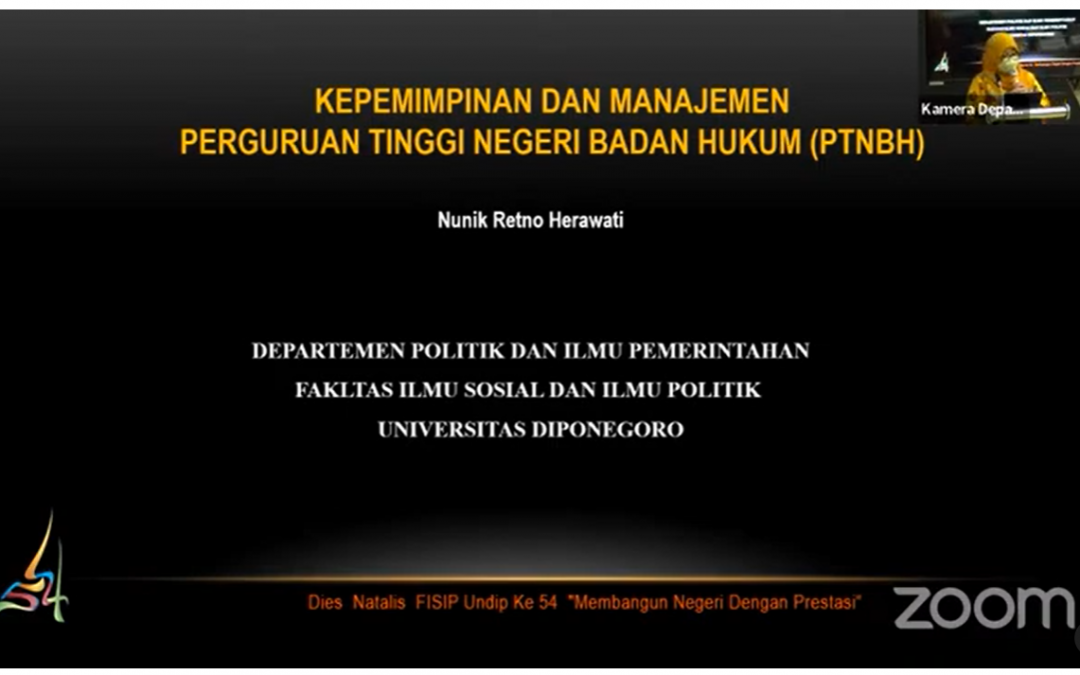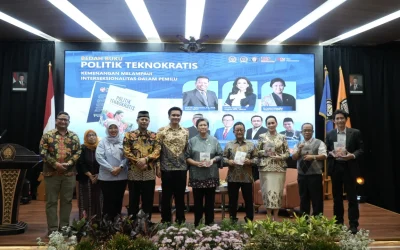“Education is a determining factor in the success of human development because education functions as a creator of knowledge, skills, values and culture. Education is considered successful if it produces a young generation who is intelligent, and has good character, morals, and personality. Higher education as part of the national education system has a great task and responsibility because it is not only expected to produce quality graduates but also have competitiveness in the global market,” said Dr. Nunik Retno Herawati, S.Sos., M.Si., Lecturer of Department of Politics and Government Studies, Faculty of Social and Political Sciences.
In the scientific study that took her to graduate as a Doctor, Dr. Nunik raised the title of Leadership and Management of Legal Entity State Universities (Perguruan Tinggi Negeri Berbadan Hukum/PTNBH). She stated that the status of PTNBH had given several implications in the management or governance of independent decision-making as well as the right to manage higher education independently, transparently and accountably. The success of achieving PTNBH goals was largely determined by leadership factors.
“Leadership ability is determined by the accuracy of strategic planning and the ability to carry out analysis in running institutional development. By being able to carry out strategic management, leaders will be able to make strategic policies based on choices from various alternatives that have been compiled and selected based on priorities,” she explained.
Furthermore, Dr. Nunik said that leadership was also necessary to drive the organization, encourage and motivate subordinates. The choice of approach strategy could be carried out by the leader to encourage and motivate his/her subordinates. A leader, either individually or in a group, could not possibly work alone but needed a group of others known as subordinates, who were mobilized in such a way that they give their devotion and contribution to the organization, especially in how to work effectively, efficiently, economically and productively. Leadership was a very important force behind the power of various organizations and to create an effective organization, the scope of work of what they could achieve, then mobilized the organization to change towards the new vision.
“The recommendation from this research is the need for university leaders to consider the sustainability of strategic choices based on their resource capabilities. A university that has become a legal entity is an independent university so it requires encouragement and the ability to fulfil its needs independently. The increasingly competitive PTNBH competition and the globalization of education demand the need for strategic policy innovation in order for subordinates to have an academic atmosphere that can encourage the achievement of the vision of becoming a World Class University, ” she concluded. ( Lin-Public Relations )
Source: undip.ac.id




0 Comments